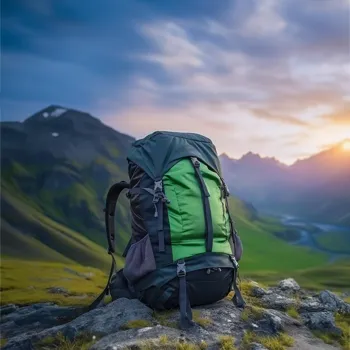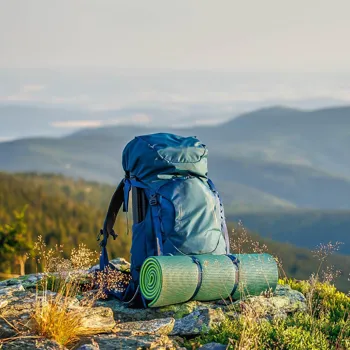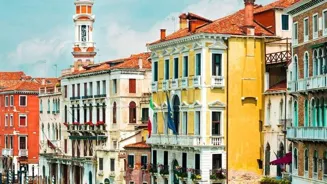Unveil the secrets of crafting a savvy travel budget in Indian Rupees! Learn to save on your dream trip while enjoying every moment. Read on to master the art of budgeting for your next adventure!
Dreaming
of that perfect getaway? Picture yourself strolling along serene beaches, exploring historical sites, or maybe even trekking through the Himalayas? But before you pack your bags, there's one crucial step: creating a rock-solid travel budget. Don't let the numbers intimidate you!

Planning a budget isn’t about restricting yourself; it's about being smart, making informed choices, and ensuring you can enjoy your trip to the fullest without stressing about overspending.
This article will guide you through the process, providing practical tips to help you save money on your next adventure, all while keeping your budget in Indian Rupees!
First things first
Define your travel style. Are you a luxury traveler, backpacking on a shoestring, or something in between? This understanding will heavily influence your budget. A luxury traveler might prioritize comfort and convenience, opting for high-end hotels and private tours.

A budget traveler might prefer hostels, local transport, and free activities. Figure out what aspects of your trip are most important to you. Are you willing to splurge on experiences or would you rather save on accommodation and food to have more spending money for souvenirs and fun activities?
Once you’ve defined your travel style, you’ll have a clear idea of where you can save and where you'd prefer to spend a little extra. This initial assessment is important for tailoring the budget to your personal needs and preferences for a personalized trip.
Research flight deals, budget accommodation, local transport, food, activities
Once you have a realistic understanding of your travel style and priorities, it's time to research and estimate your major expenses. Start with transportation. Flight tickets are usually the biggest cost. Use flight comparison websites to find the best deals, and be flexible with your travel dates.
Consider flying on weekdays or during off-peak seasons, as prices are generally lower then. Next, look at accommodation.
Hostels and guesthouses are the most affordable options, but if you prefer more privacy and comfort, then look for budget-friendly hotels or consider renting an apartment through websites like Airbnb. Now consider local transportation.
This would be traveling inside the city you are visiting so traveling in autos rickshaws can be more expensive and can add up so consider local buses, metro trains which are cheaper . Finally think about your food and activities and keep aside a budget for things you might want to buy.
Break down travel budget into categories for better control and flexibility
Now it's time to break down your travel budget into smaller, more manageable categories. Think of it as creating a detailed expense sheet.
Here's a sample breakdown: Transportation (flights, trains, buses, local transport), Accommodation (hotels, hostels, guesthouses), Food (restaurants, street food, self-catering), Activities & Sightseeing (entrance fees, tours, excursions), Visa & Travel Insurance, Shopping & Souvenirs ,Miscellaneous (unexpected expenses, laundry, toiletries),Emergency Fund (for unforeseen events).
Allocate a specific amount of money to each category, being realistic about the potential costs. Once you have a detailed breakdown it will be easier to control your costs as you will have something to compare to. Check multiple websites so you can compare prices and get the best deals out there.
It's always good to keep some headroom in each category so you can have some flexibilty as well.
Track spending diligently to stay within budget; adjust daily
Once the budget is prepared now it just the matter of tracking your spending . One of the most effective way to stay on the track with your budget is to diligently track your expenses. This can be done manually with a notebook and pen, or digitally using a spreadsheet or budgeting app.

Every time you spend money, record the amount and the category it belongs to. Regularly review your expenses to see if you are staying within your allocated budget for each category. Its good to track expenses daily. Also, look out for areas where you might be overspending.
For instance, if you are spending too much on food, you might consider cooking your own meals more often or finding cheaper restaurants.
Tracking your spending gives you the data you will need and you can adjust and be better prepared each day and even learn a lot from your previous days experiences. This way, you can make necessary adjustments along the trip.
Save money on travel: opt for free activities, local food, off-season travel, and haggle for deals
There are many small but effective ways to save money during your travels. Choose free activities. Many cities have museums, parks, and historical sites with free admission. Explore local markets, go for hikes, or simply wander around and soak in the atmosphere. Eat like a local.
Avoid tourist traps and look for local eateries or street food vendors. This is often the most affordable and authentic way to experience the local cuisine. Take advantage of free transportation. Many cities offer free walking tours or have affordable public transportation options.
Walk or cycle whenever possible to save money and get some exercise. Travel during the off-season. The off-season usually means lower prices and less crowds. You can often find discounted flights and accommodation during these times.
And always negotiate especially in local markets where bargaining is expected. Don't be afraid to haggle for better prices on souvenirs and other items.
Travel budgeting tips for a fulfilling journey without overspending
Finally, remember that your travel budget is a flexible guide, not a rigid set of rules. Don't be afraid to adjust it as needed, but always keep your financial goals in mind. Be prepared for unexpected expenses and keep an emergency fund for unforeseen circumstances.

By following these tips, you can create a travel budget that works for you, allowing you to enjoy your trip to the fullest without breaking the bank. Safe travels and happy budgeting! Enjoy the beauty that India and the world has to offer!
Budgeting is a continuous process that can be refined and improved with each trip. The more you travel, the better you'll become at estimating costs and finding ways to save money. So, don't be discouraged if your first budget isn't perfect.
Learn from your experiences, adapt your strategies, and continue to refine your approach to budgeting. With practice, you'll be able to travel more frequently and experience more of the world, all while staying within your financial means.
AI Generated Content. Glance/InMobi shall have no liability for the content














